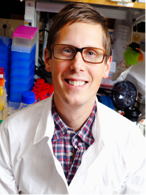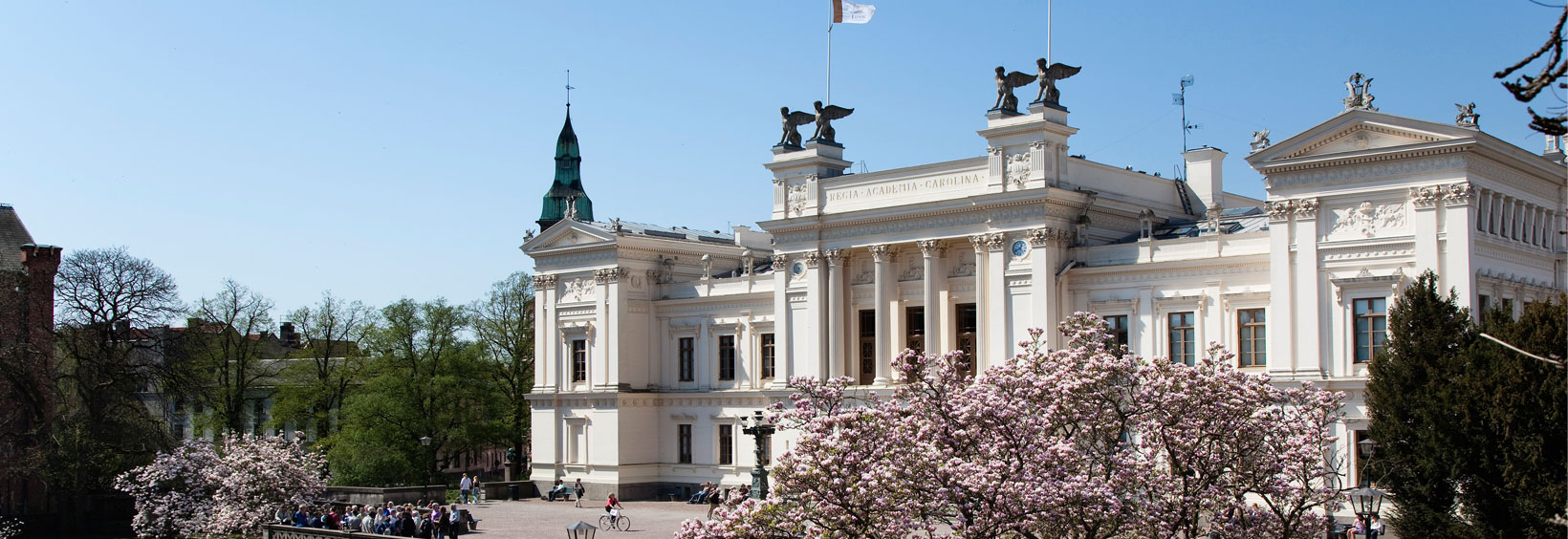Medicon Village in Lund is one of the world’s foremost cancer research centres. One of the leading researchers who has just been recruited is Kristian Pietras, one of Sweden’s ‘super talents’ after heading a study that could lead to a vaccine against breast cancer.
For a tumour to grow larger than a pea, new blood vessels must be formed to supply it with oxygen and nutrients. The cancer cells therefore stimulate the body’s own cells to form blood vessels and support structures around the tumour. The more aggressive this growth is, the more deadly the tumour becomes. Kristian Pietras and his research team studied a protein, DII4, that is necessary for the tumour to ‘persuade’ other cells to form new blood vessels.
 – Our studies gave us the idea of trying to develop a vaccine against the protein, says Kristian Pietras. It sounds so simple when he describes it. When asked, “how did you discover it?” Kristian laughs.
– Our studies gave us the idea of trying to develop a vaccine against the protein, says Kristian Pietras. It sounds so simple when he describes it. When asked, “how did you discover it?” Kristian laughs.
– Of course it is based on previous research, he says, drawing out his answer. But ‘discover’ is a bit strong. I was fascinated by the fact that a tumour can’t grow without interaction with the surrounding cells. How does it work? What happens when the tumour interacts with the other cells in the body? How can the tumour fool the body in this way? That was roughly how it went, he says.
A nice guy
He is humble and meditative during the interview, and careful to emphasise the contributions of others; for example Göran Grosskopf’s generous donation of SEK 10 million that made his recruitment possible and Lund University for daring to choose a young researcher, “instead of an older and safer card”, as he puts it.
He also emphasises the unique environment at Medicon Village with the focus on cancer research in particular and the proximity to the University’s hi-tech platforms and the biotech sector within easy reach.
We talk about the conditions for research and suddenly Kristian’s eyes light up.
– What a great opportunity the investment in Medicon Village will be for research throughout Sweden. Generally it is not a good thing that such a large proportion of the resources are concentrated on Karolinska Institutet in Stockholm. We need greater mobility among researchers – it is in meetings with others that we develop both our own and others’ findings.
– A University can never be good at everything. This investment means that Lund University can specialise to compete with other world leading institutions and really build something unique.
You are an internationally renowned researcher and have worked at the University of California in San Francisco, among others. Today you have a good job at Karolinska Institutet. What made you choose Lund over all this?
– The challenge! It’s a great opportunity to be involved in building something entirely new with the resources provided at Medicon Village. We will have the perfect conditions to exchange experiences across disciplines, something I am really passionate about. I also like the idea that the profits from the centre will be reinvested in research. It’s both kind and clever.
– My second reason for choosing Lund was that I like the University’s daring and desire to invest in a young researcher. Many people talk about it, but few dare to do it when it comes to the crunch, he says.
A couple of years ago you received a lot of attention for your trials of a vaccine against breast cancer. Will you continue to work on this in Lund?
– Yes and no. I have handed over the work on a possible vaccine against protein DII4 to others. I will continue to work on the interaction between cells and understanding how the tumours interact with other cells in the body.
– I have increasingly been drawn to research on breast cancer. It is a large disease group and the outlook for those affected is relatively good. Research in the field has come a long way and I will be looking at whether the cells in the immediate vicinity of the tumour control what type of breast cancer different individuals get, among other things.
Kristian Pietras grew up in Höllviken in Skåne. Yet he never studied at Lund University.
– No, he says, laughing at the insinuation of the question. “I didn’t go to Lund… I chose Uppsala instead because they were the first in Sweden to offer a degree in Biomedicine.
After gaining a PhD from the Ludwig Institute for Cancer Research in Uppsala, he went to the University of California to do a postdoctoral fellowship under Douglas Hanahan, an international authority within cancer research. In 2005 his longing for Sweden became too great.
– My wife and I had always said we would return to Sweden after a few years. Ten years in Uppsala meant that Stockholm and Karolinska Institutet was the most natural choice.
What is your ultimate dream as a researcher?
– For me, being able to work as a researcher is a dream. The conditions for young researchers in Sweden nowadays are tough, with intense competition for both jobs and grants. I am very grateful to have had these opportunities and my dream is to continue with what I am doing at the moment.
– A Nobel Prize? No, that’s not really something you dream about!
Do you think we will solve the mystery of cancer during your lifetime? Or perhaps even in ten or fifteen years?
– Cancer is really around a hundred different diseases. So we have around a hundred mysteries to solve. However, for every answer we find, new mysteries emerge that must be researched and pondered.
– I am doubtful as to whether we will ever solve the entire mystery of cancer. At any rate, we will not manage it in the next ten or fifteen years. The most important thing is rather that we are constantly on our toes and learning more. This will help more people with cancer to survive longer.
Kristian Pietras will complement the extensive cancer research that is already conducted at Lund University. The research is conducted across a broad spectrum, from epidemiological studies that map cancer cases to new techniques for early diagnosis and personalised treatment. All the research is carried out in very close collaboration with cancer care in Skåne.
In 2010 you were named as one of Sweden’s top talents by the leading business newspaper Veckans Affärer (placed 23 out of 101). What happens after a distinction of this kind, both professionally and personally?
– I don’t know about professionally…, he says, hesitating. That list is not very well known in academic circles. But personally it is great, of course.
Kristian is quiet for a moment.
– Researchers in Sweden receive far too little attention outside academic circles. All the large higher education institutions in Sweden have young researchers who really are world-leading and who do fantastic things – but neither the universities nor the researchers themselves are particularly good at explaining what they do to a wider audience. Imagine if these talented researchers were more visible, what a good example that would set for other young people. Just look at our sports stars. Researchers should be able to inspire young people in the same way and get them to realise what fantastic knowledge and discoveries are waiting for those who want to find them.
– We talked about dreams earlier”, continues Kristian Pietras. That’s probably one of my dreams: to set a good example and get other researchers and young people to see the opportunities available. Because they are there – just seize them!
About Kristian
Name: Kristian Pietras
Age: 38
Interests: Family and research. Being outdoors and breathing fresh air
Dreams of: A continued good life for me and my loved ones
Currently: Headhunted super talent at Lund University and Medicon Village
Text: Joen Garsén
Photo: Ulf Isacson
Related posts: “Donation made ‘super recruitment’ possible“
To learn more about Medicon Village: http://www.mediconvillage.se/en

